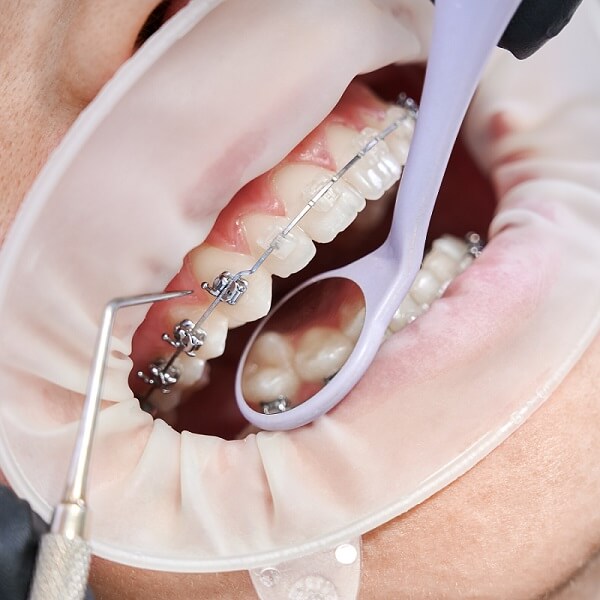Can You Get Wisdom Teeth Pulled While Wearing Braces?
“Managing Wisdom Teeth and Braces: Is it Possible to Get Them Pulled While Wearing Braces?”
Wisdom teeth, also known as third molars, are the last set of teeth to develop in the back of your mouth. They usually emerge between the ages of 17 and 25, but not everyone has them. While some people have enough room in their mouths to accommodate these teeth, others do not. In fact, wisdom teeth can cause many problems, including pain, infection, and even damage to adjacent teeth. In some cases, the orthodontist may recommend removing these teeth, especially if the patient wears braces. But can you get wisdom teeth pulled while wearing braces? Let’s find out.
Firstly, it’s important to understand that wisdom teeth removal is a surgical procedure. It involves making an incision in the gum tissue to access the tooth, which may need to be cut into pieces to be removed. This can be difficult when the patient wears braces because the brackets and wires can get in the way of the dentist or oral surgeon’s work. Additionally, the pressure from the braces can affect the healing process, causing discomfort and delaying recovery.
That being said, it is possible to have your wisdom teeth pulled while wearing braces, but it requires careful planning and coordination between your orthodontist and the oral surgeon. Here are some factors to consider:
Timing
The best time to remove wisdom teeth is before the braces are put on. This way, the orthodontist can make sure there is enough space for the remaining teeth to move into their proper positions. However, if the wisdom teeth are already present and causing problems, the orthodontist may recommend removing them while the patient wears braces.
Type of braces
Traditional metal braces may pose more of a challenge than clear aligners or ceramic braces because they have more hardware that can interfere with the oral surgeon’s access to the wisdom teeth. However, experienced oral surgeons are used to working around braces and can do so effectively.
The severity of the case
If the patient has a severe malocclusion or bite problem, the orthodontist may not want to risk removing the wisdom teeth until the braces are off and the teeth have settled into their final positions. This is because removing teeth can change the alignment of the remaining teeth, which may affect the final outcome of the treatment.
Anesthesia
Wisdom teeth removal is typically done under local anesthesia, but some patients may require sedation or general anesthesia. If the patient is wearing braces, the oral surgeon will need to take extra precautions to protect the brackets and wires during the procedure.
Post-operative care
After the wisdom teeth are removed, the patient will need to follow specific instructions for caring for their mouth, including avoiding certain foods and activities. This can be more challenging with braces, as the patient will need to be extra careful not to damage the brackets or wires while recovering.
In conclusion, getting wisdom teeth pulled while wearing braces is possible but requires careful planning and coordination between your orthodontist and the oral surgeon. It’s essential to discuss the pros and cons of removing your wisdom teeth with your orthodontist and oral surgeon to determine the best course of action for your specific case. They may recommend waiting until the braces are off or removing the wisdom teeth before or during the orthodontic treatment. In any case, following the post-operative care instructions carefully is crucial for a smooth recovery and successful treatment outcome.






 |
|